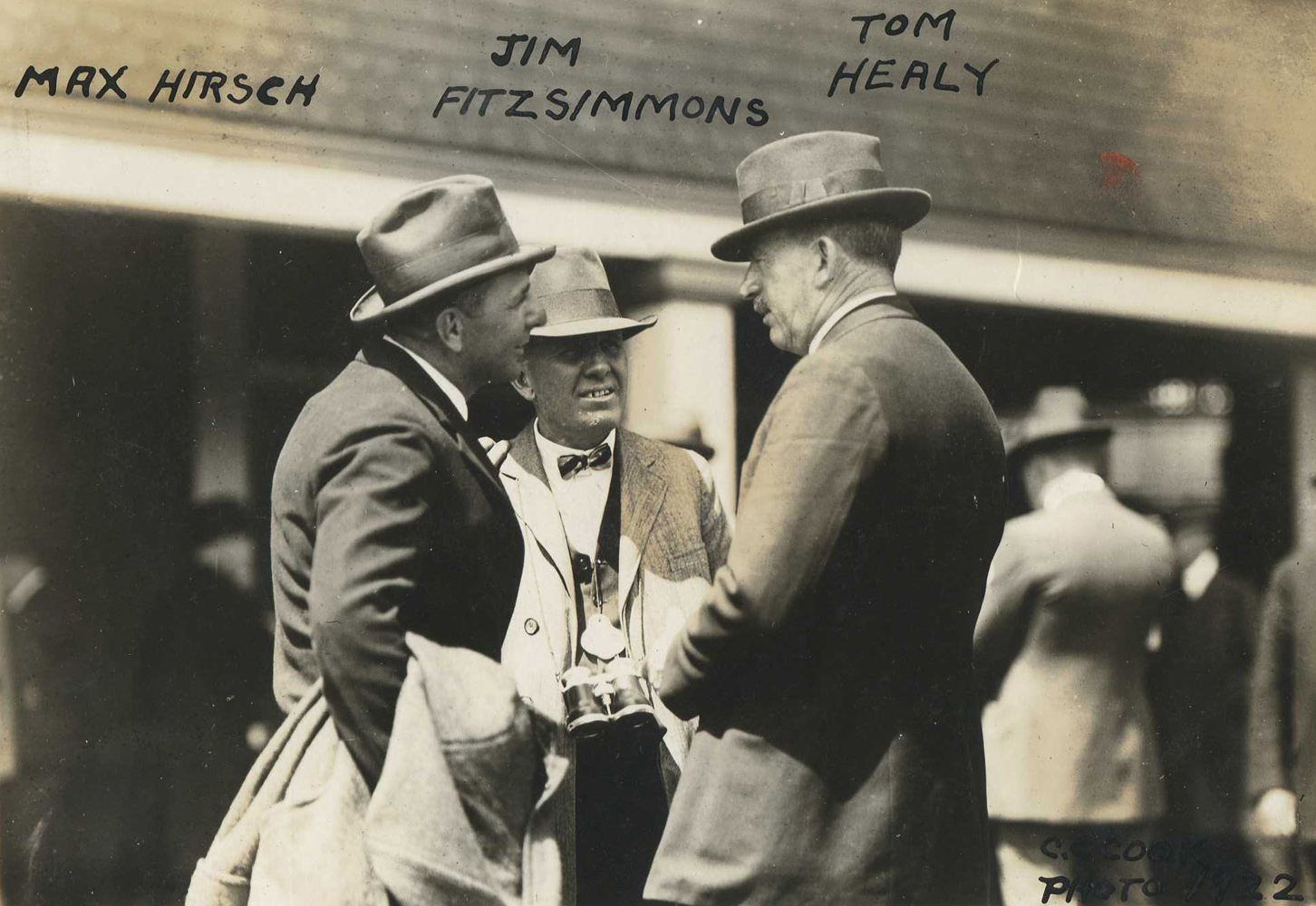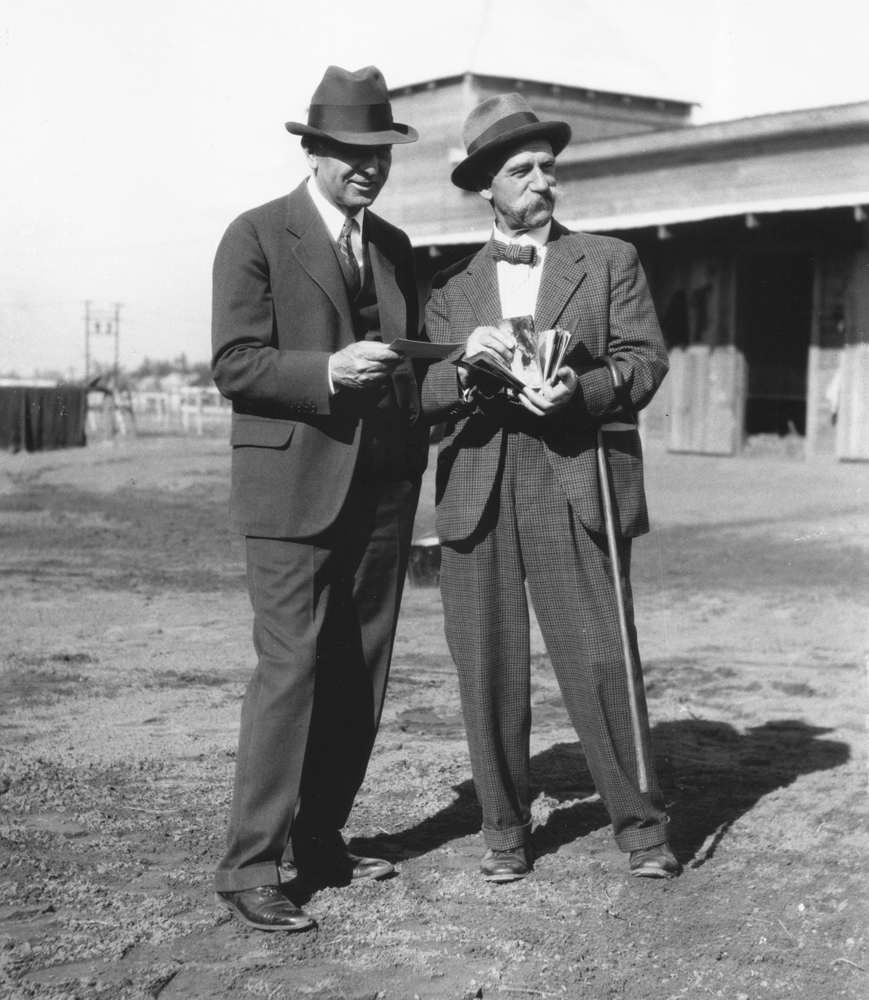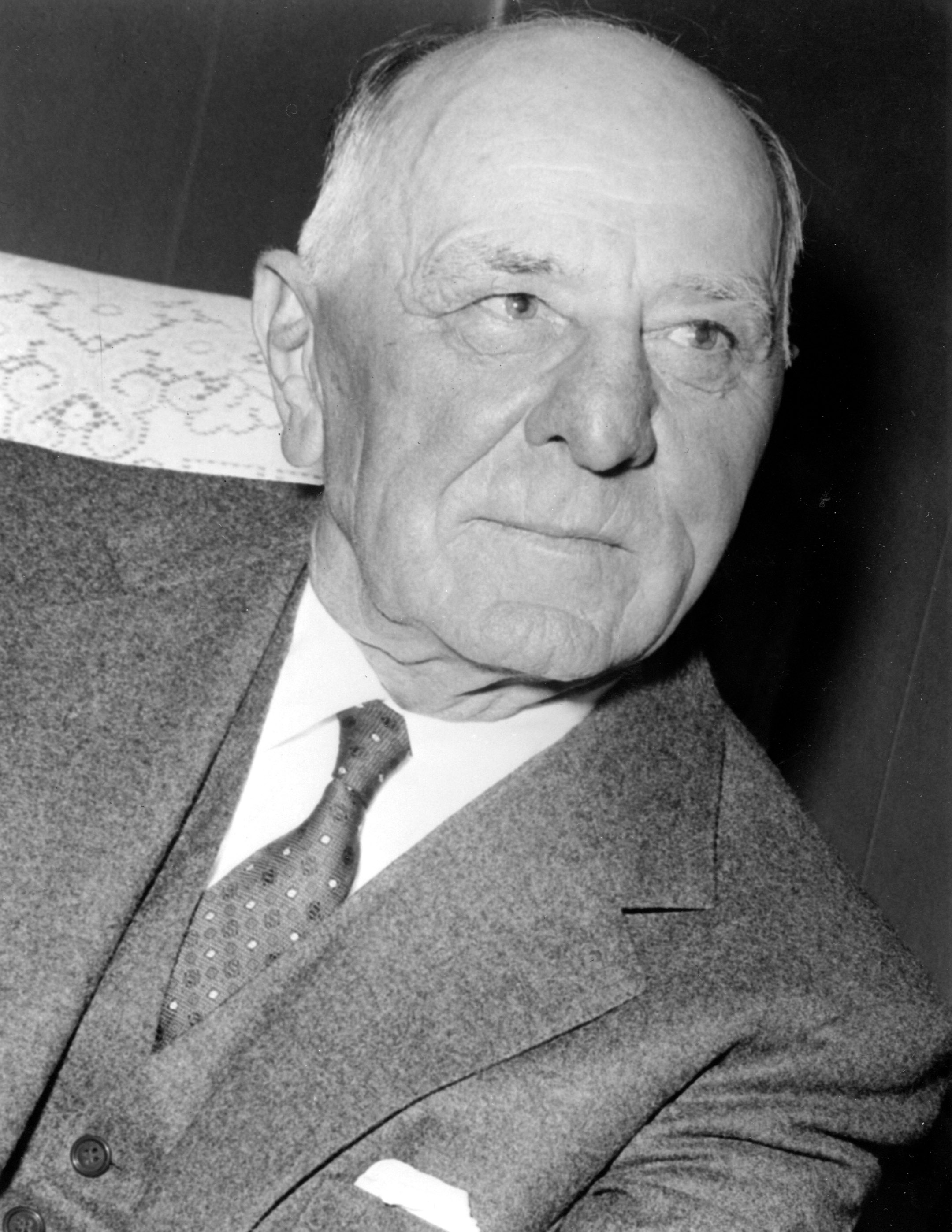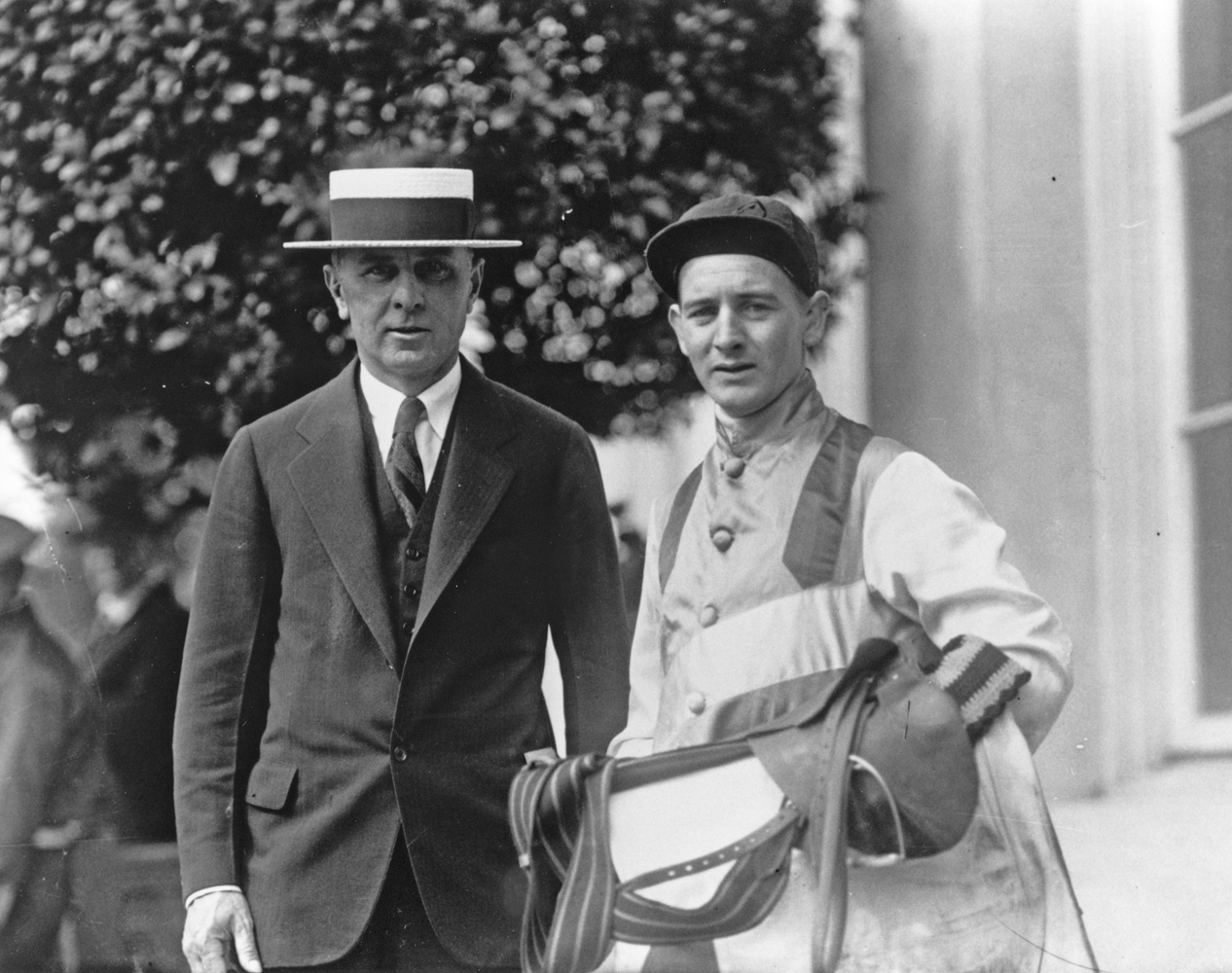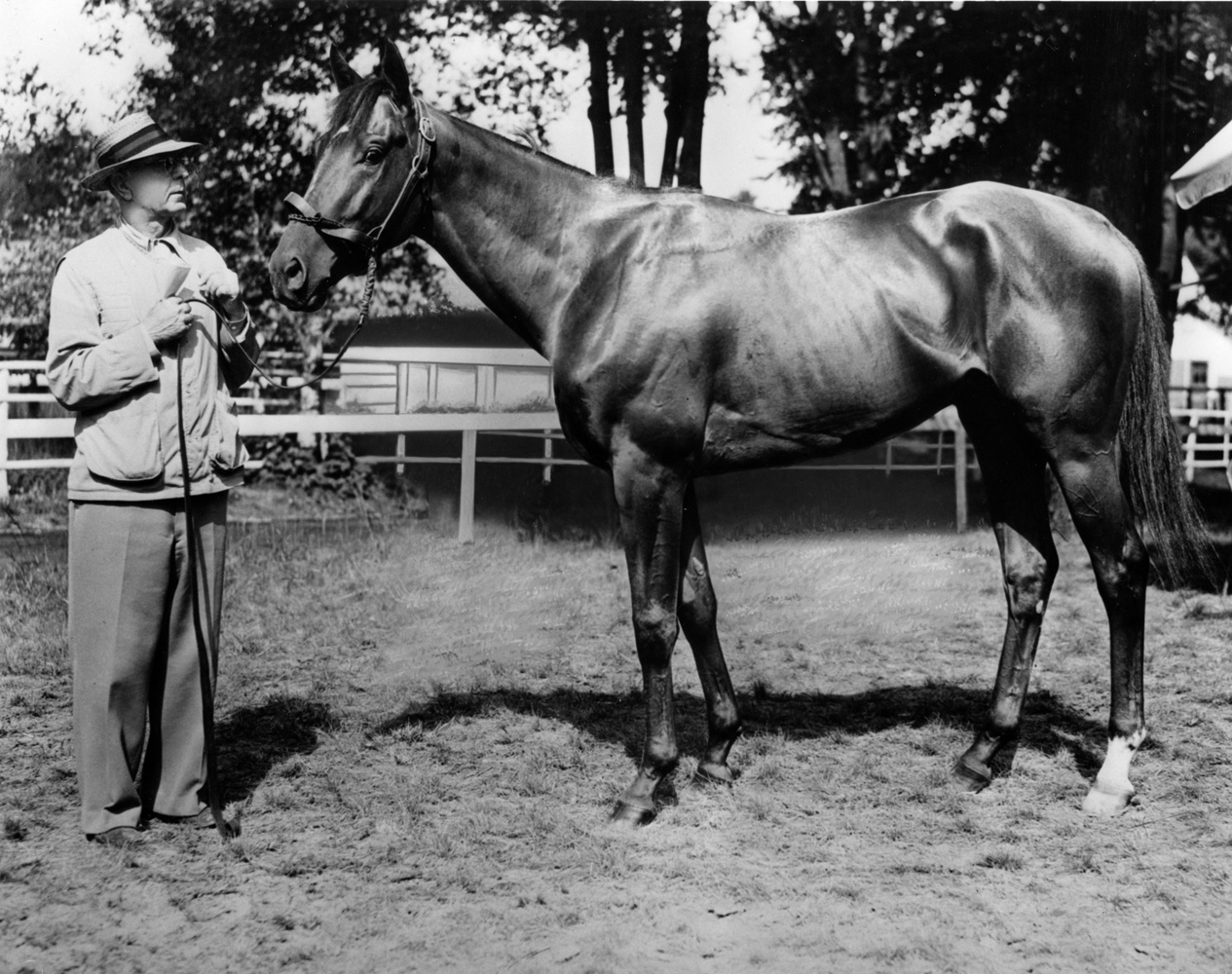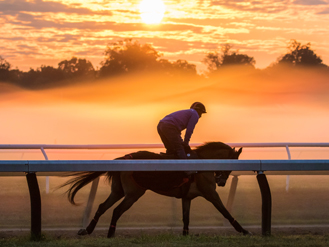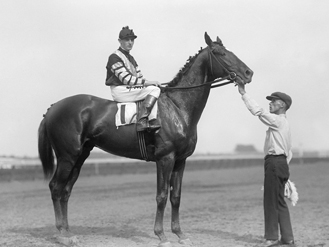Maximilian J. Hirsch
Max Hirsch snuck aboard a train from Texas to Maryland at the age of 12 and was off to the races. He got the bug a couple years earlier when he was riding horses in Texas fairs. The youngster was noticed by John A. Morris and went to work at the prominent owner’s ranch. When he heard word that Morris was sending several racehorses to Baltimore, Hirsch saw an opportunity to chase his dream.
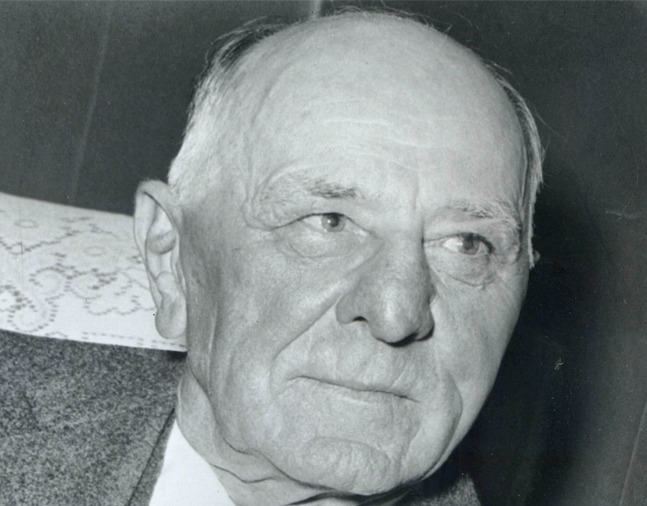
1959
July 30, 1880, Fredericksburg, Texas
April 3, 1969, New Hyde Park, N.Y.
1900-1969
1,933
$12,203,370
Biography
Max Hirsch snuck aboard a train from Texas to Maryland at the age of 12 and was off to the races. He got the bug a couple years earlier when he was riding horses in Texas fairs. The youngster was noticed by John A. Morris and went to work at the prominent owner’s ranch. When he heard word that Morris was sending several racehorses to Baltimore, Hirsch saw an opportunity to chase his dream.
In Maryland, Morris put the young stowaway to work in his racing stable. A couple of years later, around the age of 14, Hirsch became a jockey. He won 123 races while in the irons before increasing weight derailed his riding career.
Hirsch became a trainer at the age of 20 and earned his first win in that capacity in New Orleans with a horse named Gautama. His first major victory came in the 1915 Dwyer Stakes with Norse King. Hirsch’s first great horse was Hall of Famer Sarazen, whom he trained for Virginia Fair Vanderbilt.
For Hirsch, Sarazen won 27 of 55 starts, including back-to-back editions of the Dixie Handicap in 1925 and 1926, as well as the Carter, Manhattan, and Metropolitan handicaps, among others. Hirsch said Sarazen’s 1924 victory in the International Special No. 3 over standout horses from both America and Europe was one of his favorite racing moments. In that contest, at Latonia in Kentucky, Sarazen defeated Belmont Stakes winner Mad Play, Hall of Fame filly Princess Doreen, and European star Epinard.
Hirsch enjoyed tremendous success in the Triple Crown events, sweeping the series with the King Ranch colt Assault in 1946. Hirsch also won the Kentucky Derby with Bold Venture (1936) and Middleground (1950), the Preakness with Bold Venture (1936), and the Belmont with Vito (1928), Middleground (1950), and High Gun (1954), for a total of nine wins in the American classics. All three of Hirsch’s Derby winners were owned by King Ranch.
Although records from Hirsch’s training from 1900 through 1908 are incomplete, he won a confirmed 1,933 races with purse earnings of $12,203,270 from 1909 through 1969. Hirsch’s last winner, a filly named Heartland, won the feature at Aqueduct only hours before the old master died April 3, 1969 at the age of 88. Hirsch’s final full year as a trainer was his best statistically, as he led all New York trainers in 1968 with earnings of more than $900,000.
Hirsch’s daughter, Mary, who married racing official Charles J. McLennan, became the first woman to be granted a trainer’s license. Two of Hirsch’s sons also became trainers. One of them, William J. “Buddy” Hirsch, succeeded his father as the trainer for King Ranch and was also inducted into the Hall of Fame.
Achievements
Triple Crown Highlights
Won the 1936 Kentucky Derby — Bold Venture
Won the 1946 Kentucky Derby — Assault
Won the 1950 Kentucky Derby — Middleground
Won the 1936 Preakness Stakes — Bold Venture
Won the 1946 Preakness Stakes — Assault
Won the 1928 Belmont Stakes — Vito
Won rge 1946 Belmont Stakes — Assault
Won the 1950 Belmont Stakes — Middleground
Won the 1954 Belmont Stakes — High Gun
Other Highlights
Won the Dwyer Stakes — 1915, 1927, 1946, 1954, 1959
Won the Hopeful Stakes — 1917, 1931, 1949
Won the Suburban Handicap — 1923, 1946, 1966
Won the Arlington Classic — 1932, 1941, 1947
Won the Jersey Derby — 1942, 1959, 1968
Won the Jockey Club Gold Cup — 1932, 1934
Won the Metropolitan Handicap — 1942, 1956
Won the Wood Memorial Stakes — 1940, 1946
Won the Westchester Handicap — 1946, 1948
Media
